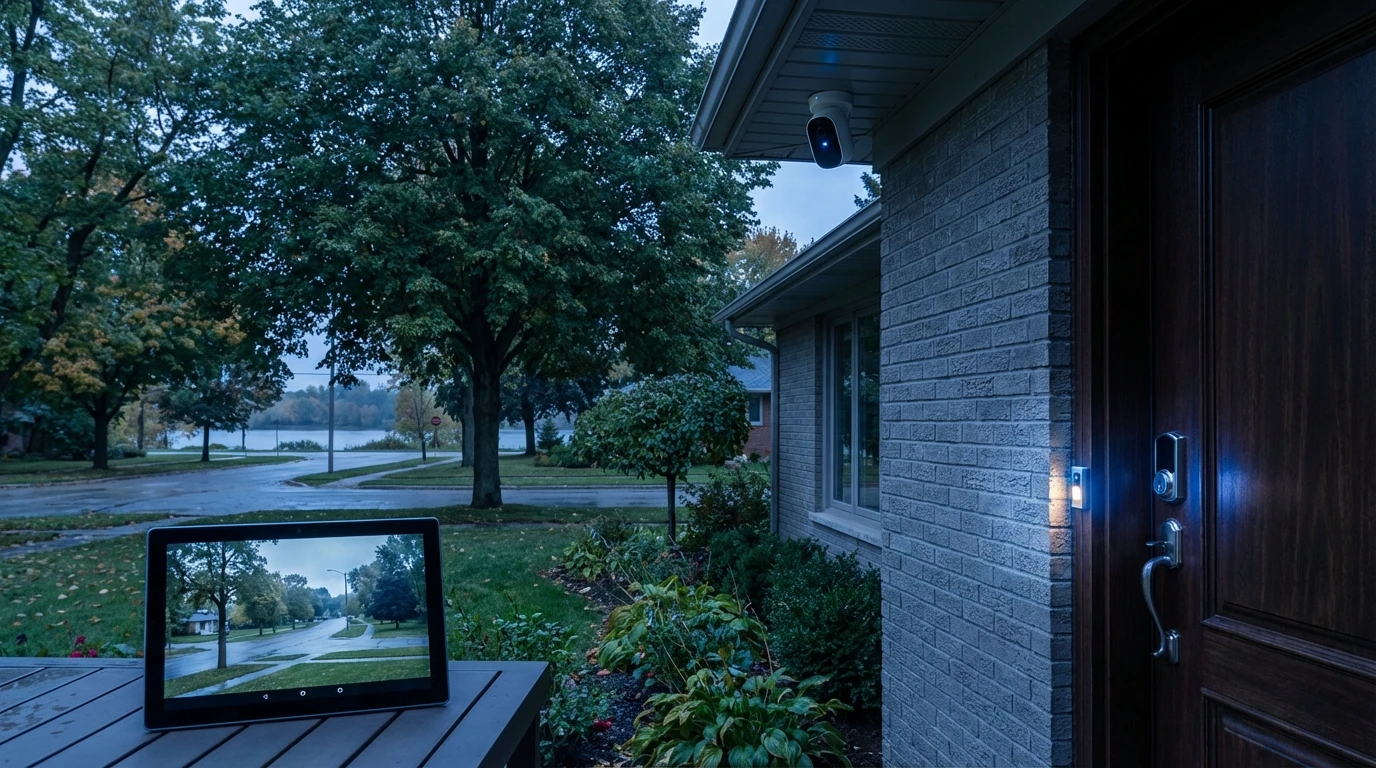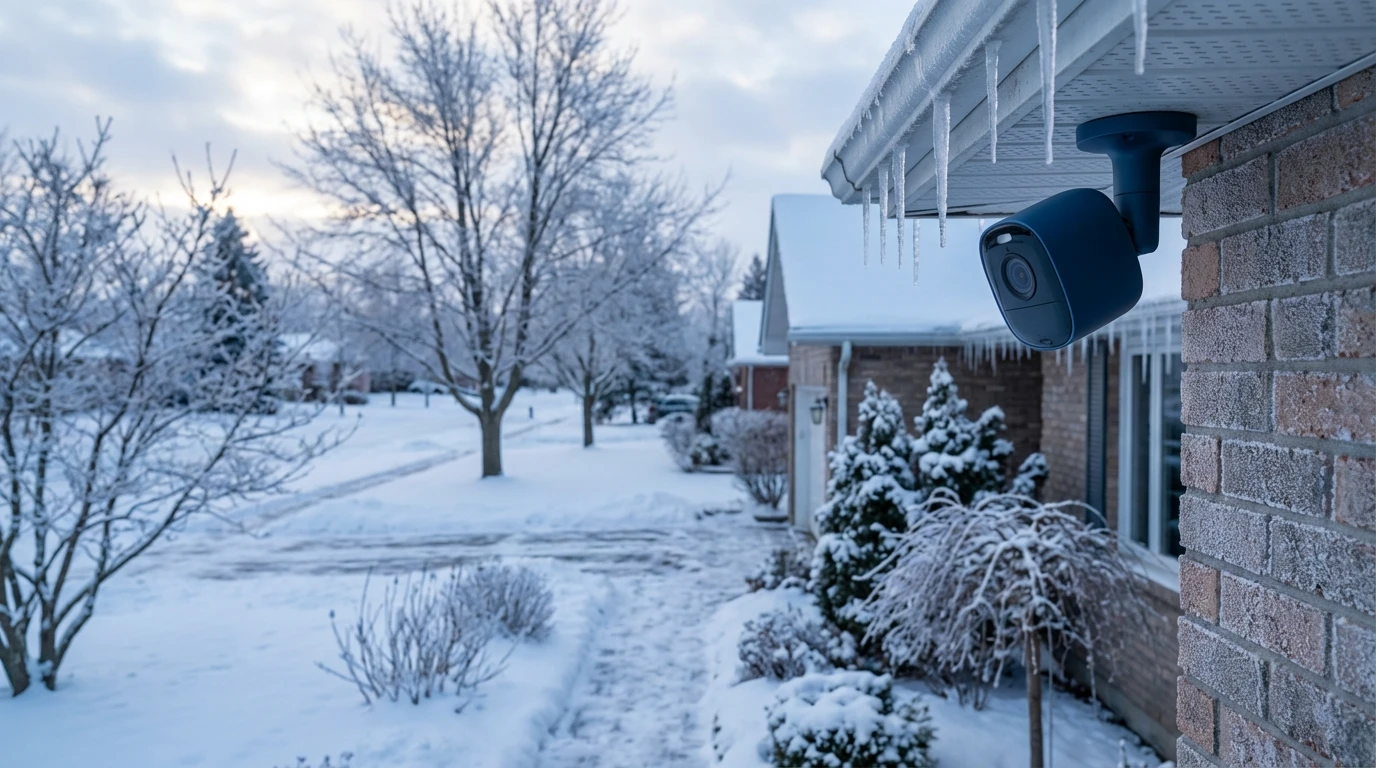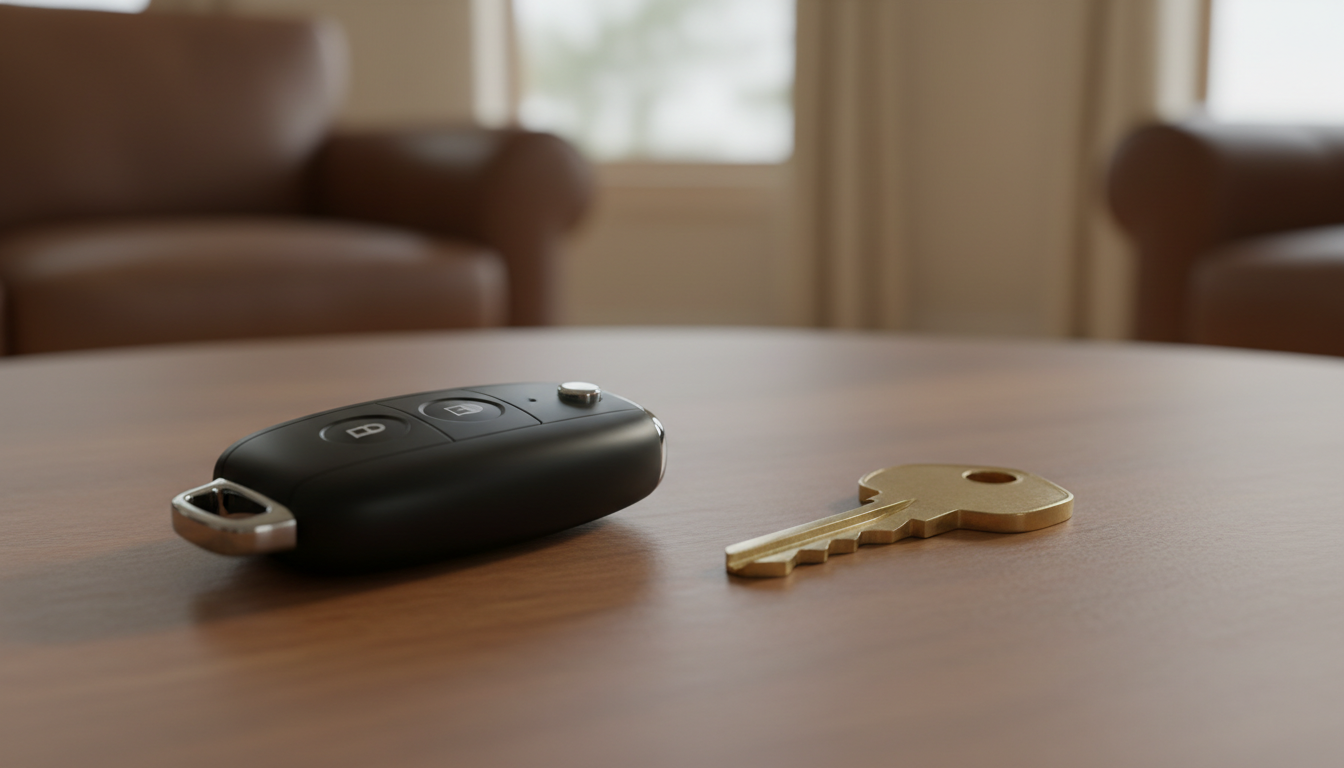We often get asked whether businesses should choose wired or wireless security cameras. As experts who have installed both across Southwestern Ontario, we can confidently say: wired systems consistently deliver the reliability, scalability, and security that businesses need.
TL;DR (Quick Answer
- Wired security cameras are the best choice for businesses.
- They provide:
- ✅ Rock-solid reliability (no WiFi dropouts)
- ✅ Higher video quality & storage
- ✅ Greater protection against hacking
- ✅ Scalability for growing operations
- ✅ Better long-term ROI
Wireless may work for small or temporary setups—but for professional businesses, wired is the only serious choice.
The Case for Wired Security Cameras
Businesses can’t afford missed footage, downtime, or unreliable coverage. Here’s why wired wins:
- Consistent Uptime: No reliance on WiFi = no interruptions.
- High-Quality Video: Supports higher resolutions and smoother playback.
- Always Powered: No dead batteries or charging cycles.
- Harder to Hack: Private connections reduce vulnerabilities.
- Professional-Grade: Built for long-term, 24/7 monitoring.
Which Is Best for Businesses?
Here’s a quick look at how wired vs wireless performs across industries:
| Industry / Business Type | Best Choice | Why |
|---|---|---|
| Retail Stores | Wired | Needs continuous monitoring & clear footage for theft prevention. |
| Warehouses / Industrial | Wired | Large spaces, thick walls—wireless signals struggle to reach. |
| Offices | Wired | Protects sensitive data & avoids WiFi-based hacking. |
| Restaurants & Hospitality | Wired | Covers entrances, kitchens, staff areas reliably. |
| Healthcare Facilities | Wired | Compliance requires secure, always-available footage. |
| Schools & Nonprofits | Wired | Protects students, staff, and facilities without downtime. |
| Small Pop-Up Shops | Wireless (sometimes) | Works for temporary, low-cost setups where wiring isn’t practical. |
| Construction Sites | Hybrid (short-term wireless, long-term wired) | Wireless can fill gaps, but wired is best for projects lasting months. |
| Car Dealerships | Wired | Large outdoor lots need dependable, high-resolution feeds. |
| Government Offices | Wired | Higher security standards demand non-hackable, compliant systems. |
👉 Takeaway: Nearly every industry benefits most from wired. Wireless only makes sense in rare, short-term scenarios.
Common Problems Businesses Face (And How Wired Solves Them)
| Common Problem with Wireless | Impact on Business | How Wired Solves It |
|---|---|---|
| WiFi Dropouts & Dead Zones | Missed footage, unreliable monitoring | Wired doesn’t rely on WiFi → continuous uptime |
| Blurry or Lagging Video | Evidence may be useless in disputes or theft | Wired supports higher resolutions & smooth feeds |
| Cybersecurity Risks | Hackers may intercept or tamper with feeds | Wired runs on private connections—much harder to breach |
| Scaling Issues | More cameras = slower, less reliable feeds | Wired systems scale easily without bandwidth strain |
| Battery Hassles | Constant charging & maintenance | Wired cameras are powered continuously—no downtime |
| Hidden Costs | Replacements, downtime, and lost footage cost more than installation | Wired’s higher upfront cost pays off long term |
How Wired Security Supports Scalability
Businesses don’t stay the same—they grow. A security system should grow with them.
- Add Cameras Without Limits: Wired systems can handle dozens—or hundreds—of feeds.
- No Performance Drops: Unlike WiFi, adding more cameras doesn’t slow the system down.
- Adaptable to Complex Layouts: Warehouses, multi-floor offices, and campuses are easily covered.
- Integration Ready: Works seamlessly with access control, alarms, and smart building systems.
- Future-Proof Infrastructure: Once the cabling is in place, upgrades are easy and inexpensive.
💡 Think long-term: A wired backbone is an investment in infrastructure, not just cameras.
Long-Term ROI of Wired Security Systems
The conversation isn’t just about cost—it’s about value and reliability over time.
| Factor | Wireless | Wired |
|---|---|---|
| Upfront Cost | Lower | Higher |
| Ongoing Maintenance | High (batteries, resets, repairs) | Low |
| System Lifespan | 2–5 years average | 10+ years with upgrades |
| Downtime Risk | Frequent interruptions | Minimal |
| Liability Protection | Risk of missing footage | Reliable evidence for insurance & disputes |
| Total Cost Over 10 Years | Often higher due to replacements & downtime | Pays for itself with reliability |
👉 Businesses don’t just pay for cameras—they pay for peace of mind and protection against loss.
Cybersecurity Risks with Wireless Cameras
For businesses, data security is just as critical as physical security. Wireless introduces vulnerabilities:
- Hackable Signals: WiFi streams can be intercepted.
- Unauthorized Access: Hackers may view or even manipulate live feeds.
- Compliance Issues: Many industries (finance, healthcare, government) prohibit unsecured systems.
Why Wired is Safer:
- Operates on a closed-loop network.
- Not exposed to WiFi hacking attempts.
- Reduces liability by ensuring only authorized staff can access footage.
Cost vs Reliability: The Real Trade-Off
| Consideration | Wireless Cameras | Wired Cameras |
|---|---|---|
| Installation | Quick & easy | Professional installation required |
| Reliability | Dependent on WiFi & batteries | 24/7 uptime, uninterrupted |
| Video Quality | Lower resolution, can lag | High-definition, consistent |
| Security | Easier to hack | Stronger protection |
| Maintenance | Battery changes, resets | Minimal once installed |
| Scalability | Limited | Built to expand |
| Best For | Small/home or temporary setups | Professional business security |
👉 Reliability is priceless. For businesses, the real risk isn’t the upfront cost—it’s what happens when a camera fails at the wrong time.
FAQ (12 Key Questions Businesses Ask)
- Are wired cameras harder to install?
Yes, but professionals handle it quickly and cleanly. - Do wired cameras still allow mobile viewing?
Absolutely—remote access apps work with both. - Can wireless cameras really be hacked?
Yes, WiFi connections are much easier to exploit. - What if my WiFi goes down?
Wireless cameras go down too—wired keeps running. - Which lasts longer: wired or wireless?
Wired systems last 10+ years with upgrades. Wireless averages 2–5 years. - Can wired systems expand if my business grows?
Yes, easily. They’re designed for scalability. - Do wired cameras still work during power outages?
Yes, with backup power systems (UPS), they stay online. - Is wireless cheaper overall?
Not long-term—hidden costs and downtime often make it more expensive. - Can I integrate alarms and access control with wired?
Yes, wired provides the backbone for full system integration. - What industries absolutely need wired?
Healthcare, retail, finance, government, schools, and large commercial spaces. - Do I lose flexibility with wired?
Not at all—modern wired systems support remote access and upgrades. - If I already have wireless, should I switch?
Yes, especially if you’ve experienced downtime, interference, or security concerns.
Final Verdict for Businesses
For serious, long-term security, wired systems are the clear winner.
Wireless cameras might suit homeowners or temporary setups, but businesses can’t risk downtime, hacking, or unreliable footage. With wired, you get:
- ✅ Reliability
- ✅ Scalability
- ✅ Cybersecurity protection
- ✅ Long-term ROI
Ready to Protect Your Business?
At C.E. Technology Solutions Ltd., we specialize in professionasl-grade wired security camera installations for businesses in Sarnia and across Southwestern Ontario.
🔒 Reliable.
🔒 Scalable.
🔒 Built for peace of mind.👉 Request a Free Quote Today or call us to speak directly with a local security expert.



